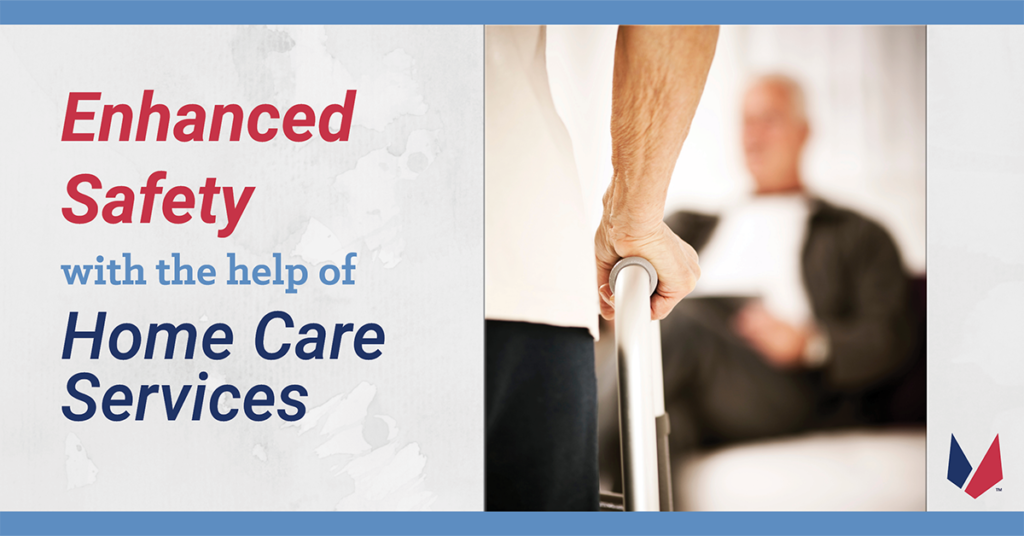Fall Prevention

According to the Centers for Disease Control and Prevention, millions of seniors 65 and older fall each year. At the same time, more than one out of four seniors who fall each year keep that information from their family or healthcare professionals. The World Health Organization (WHO) Global Report on Falls Prevention in Older Age states that “approximately 28-35% of people aged 65 and over fall each year increasing to 32-42% for those over 70 years of age.”
You may not stop a senior from falling completely, but you can decrease their chances by taking precautions. Whether it happens just once or is a common problem, you need to understand the cause. First, you need to evaluate what could be the cause of the fall. For example, is there an underlying illness, new medications, problems with blood count or blood pressure, safety issues in the home, neurological or vision problems, or podiatry?
Not all falls cause physical injury, but most falls can cause an emotional reaction, leaving seniors extremely nervous, creating changes in behaviors that can lead to additional falls. One in five falls can cause a bone fracture or head injury. Head injuries can be severe and need to be treated by a doctor immediately, especially if they take medications that thin their blood. After a fall, an older person may start to decrease their activities out of fear they could fall again. This will actually increase their chances of falling due to becoming weak with inactivity.
There are many things you can do to create a safe space and take care of the aging loved one in your life.
- Bathroom: Wet surfaces can increase risk. Provide seniors with a shower seat and a hand-held nozzle. Put down non-slip mats and install grab bars to aid with lowering or standing.
- Stairs: Keep stairs clear of debris and clutter. Make sure there is a sturdy handrail. If possible, install a chairlift or move them to a home on one level. Make sure to consider stairs on outside entries as well.
- Furniture: Remove excess furniture. Remove rugs that can cause uneven surfaces. Secure and hide all cords that can become a trip hazard. Make sure all furniture is easy for them to get in and out of.
- Lighting: Installing better or brighter lighting will help them see as they are moving around. Also, make sure that all light switches are accessible.
- Equipment: Provide the stability they need with a wheelchair, a cane, a walker, or a motorized scooter. Always consult a physician on what is required and have an occupational therapist train seniors on the proper use of the device.
- Footwear: Evaluate shoes for non-slip soles and proper fit. Velcro straps can be an easier option as long laces can cause a trip hazard.
- Activity: Keeping a senior active will increase their strength and help maintain mobility through stronger muscles.
It may be hard for a senior to admit they need help. Denial, anger, or depression could set in with the thought of losing their independence. This can be hard on the senior as well as the family. Hiring a professional home care agency could be the best answer for everyone.
A professional home care agency will know how to work within the seniors’ capabilities. For example, caregivers can provide physical support as seniors try to stand or bathe. But they can also offer emotional support as many seniors become frustrated or embarrassed. Professional caregivers have the experience it takes to help lift or support a senior that is struggling on their own. This caregiver support can help the elderly regain confidence and make them aware of the precautions they now need to take.
Families might be worried about the cost of home care, but the reality is that the medical expenses associated with non-fatal falls are more than $50 billion per year, according to the CDC. Some direct costs are fees associated with hospital and doctor visits, rehabilitation, medical equipment, and prescription drugs. This doesn’t even include the long-term effects of fall injuries such as family impact, disability, and reduced independence.
Aging Veterans and surviving spouses may be eligible for the VA’s benefit Pension with Aid and Attendance to ease the financial burden of paying for much-needed home care. Veterans Care Coordination strives to help as many Veterans and surviving spouses as possible gain access to the home care they need in order to continue living the high-quality of life they deserve.
Our partner providers join Veterans Care Coordination in the mission to improve the quality of life for Veterans and their families. We partner with quality home care providers to help navigate the VA’s application process for pension funds, maximize the VA pensions benefits, and get care started as quickly as possible.
